How to Get a Puppy to Drink Water: Essential Hydration Tips
Ensuring that our puppies stay hydrated is fundamental for their health and growth. Like human infants, puppies need adequate hydration to maintain their bodily functions and support their development. However, encouraging a new puppy to drink enough water can be challenging. It requires patience and a deep understanding of their needs as they adjust to their new environment. The importance of monitoring a puppy’s water intake is paramount, especially considering their susceptibility to dehydration.
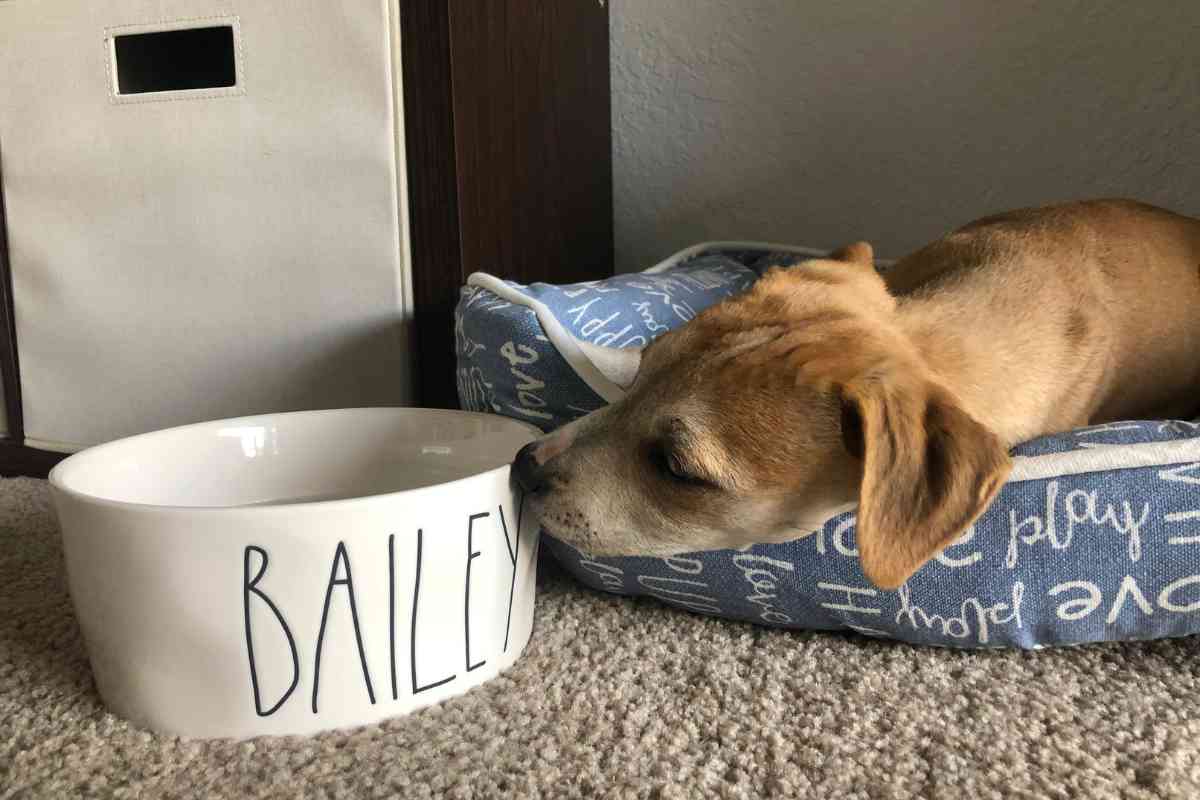
Related Post: How Often Should You Give A Puppy Water?
How do you encourage a puppy to drink water?
To encourage a puppy to drink water, provide constant access to fresh, clean water in a comfortable and reachable spot. Enhance the appeal by adding flavors like low-sodium chicken broth. Use ice cubes as playful treats or consider a pet water fountain to stimulate interest. Praise and rewards after drinking can reinforce this healthy habit.
To encourage them to drink, it’s crucial to provide consistent access to clean, fresh water and create a safe, comfortable drinking area for them. There are also several effective strategies to promote regular water consumption, which is vital for their overall well-being.
Key Takeaways
- Proper hydration is crucial for a puppy’s health and growth.
- Puppies may need encouragement to drink enough water.
- Consistent access to clean water can prevent dehydration.
Encouraging Your Puppy to Drink Water
Ensuring proper hydration is essential for your puppy’s health. Dehydration can lead to serious health issues like kidney disease. We’ll explore various methods to encourage your puppy to drink more water, from innovative tactics to enhancing their water bowl experience.
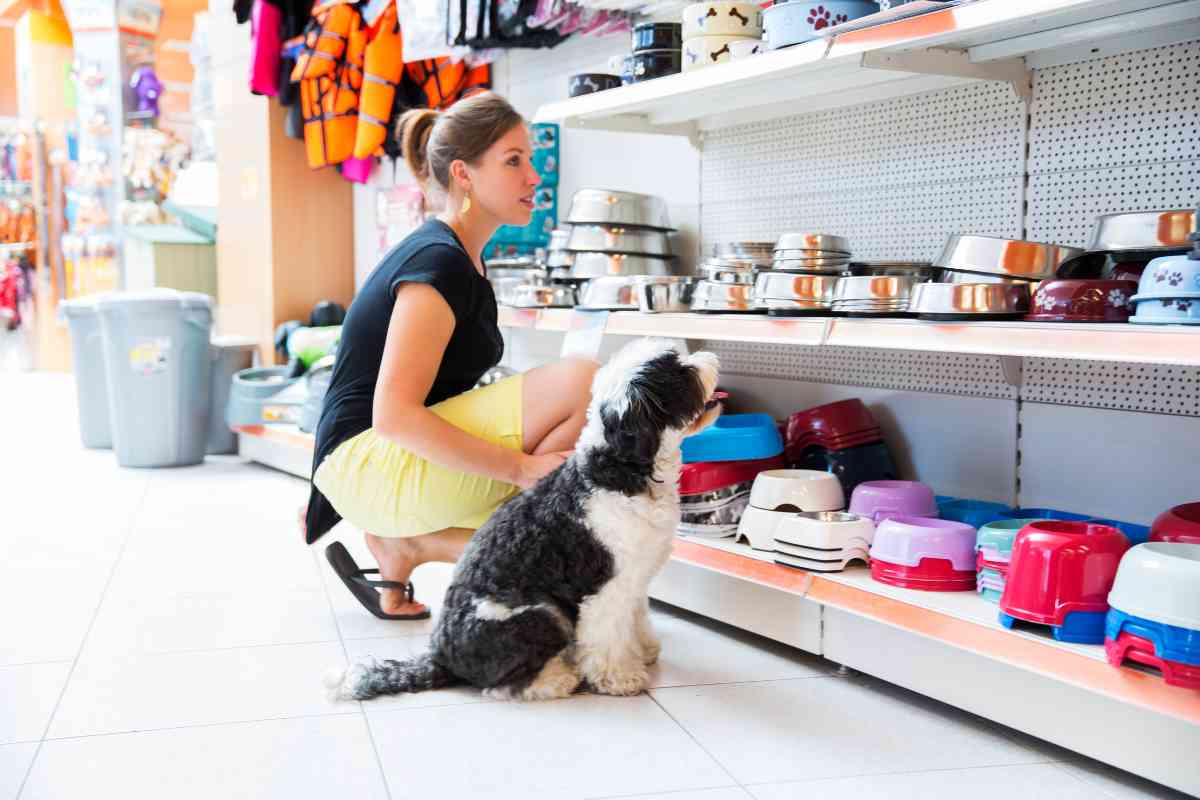
Related Post! What Happens If a Puppy Is Weaned Too Early?
Creative Ways to Encourage Drinking
Capturing a puppy’s interest in water can be achieved by adding flavors or incorporating play. Consider these ideas:
- Flavoring the Water: Adding a splash of low-sodium chicken or beef broth to the water can make it more appealing. Ensure it’s cool and free of onions and garlic, which are harmful to dogs.
- Ice Cubes as Treats: Ice cubes can be a playful treat, especially on warmer days. They can lead to increased water intake as some puppies enjoy chasing or chewing them.
Optimizing the Water Bowl Experience
The water bowl itself plays a crucial role in your puppy’s hydration. Implementing these strategies can make a significant difference:
- Clean, Fresh Water: Always maintain a clean bowl with fresh water. Stale or dirty water can discourage drinking.
- Moving Water Attraction: A water fountain may entice puppies with its visual and auditory appeal, encouraging them to drink more.
- Ease of Access: Make sure the bowl is easily reachable and at a comfortable height for your puppy.
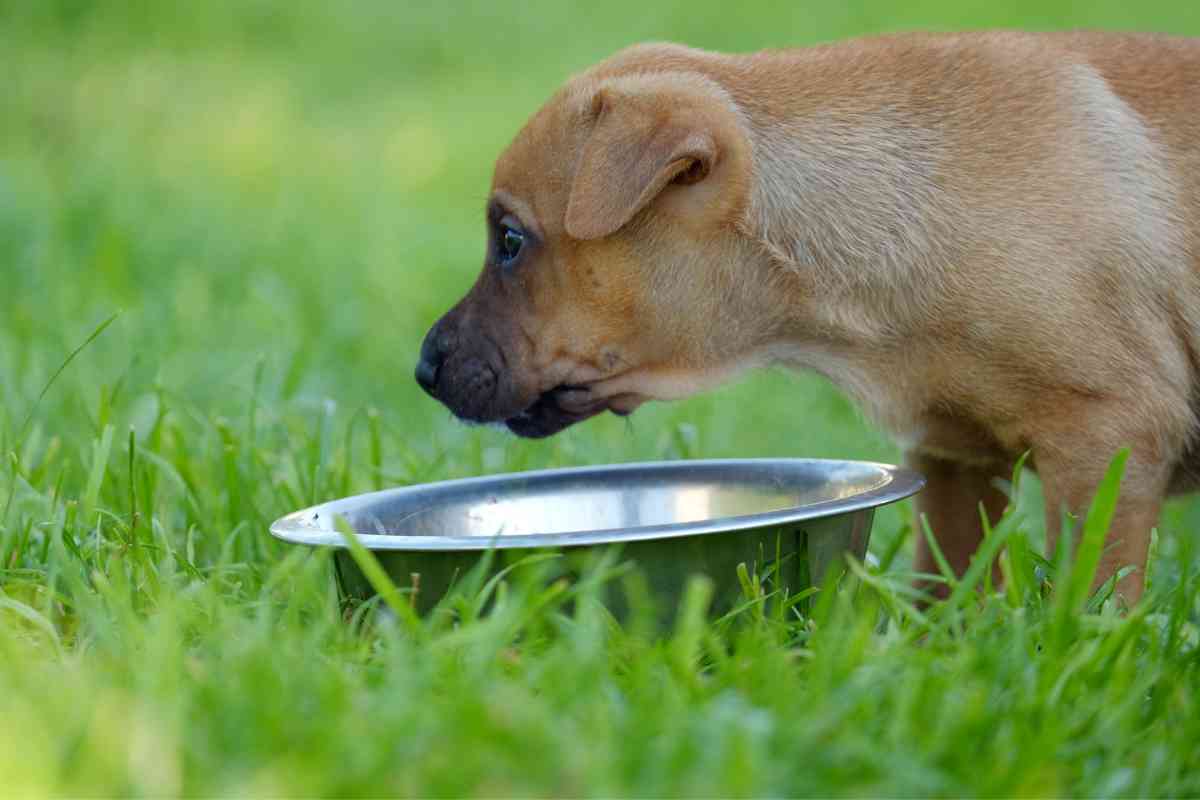
When to Consult a Veterinarian
It’s vital to monitor your puppy’s behavior for signs of dehydration since they can’t communicate with us verbally. Important points to remember:
- Behavioral Cues: Watch for signs of dehydration like lethargy or dry gums if your puppy drinks less than usual.
- Professional Advice: Seek a veterinarian’s guidance if you observe these signs or if your puppy isn’t drinking water at the expected age, as transitioning from mother’s milk to water is a critical developmental step.
| Signs to Watch | Action to Take |
| Decreased water consumption | Observe puppy, check water bowl placement |
| Lethargy or dry gums | Consult a veterinarian, check for dehydration |
Understanding Puppy Hydration
Proper hydration is vital for the health and well-being of puppies. Recognizing the signs of dehydration is essential, as is understanding the significance of providing clean, fresh water to mitigate health risks. Additionally, a puppy’s diet plays a crucial role in maintaining adequate hydration levels.
Related Post! How Much Chicken and Rice to Feed Your Puppy: A Clear and Confident Guide
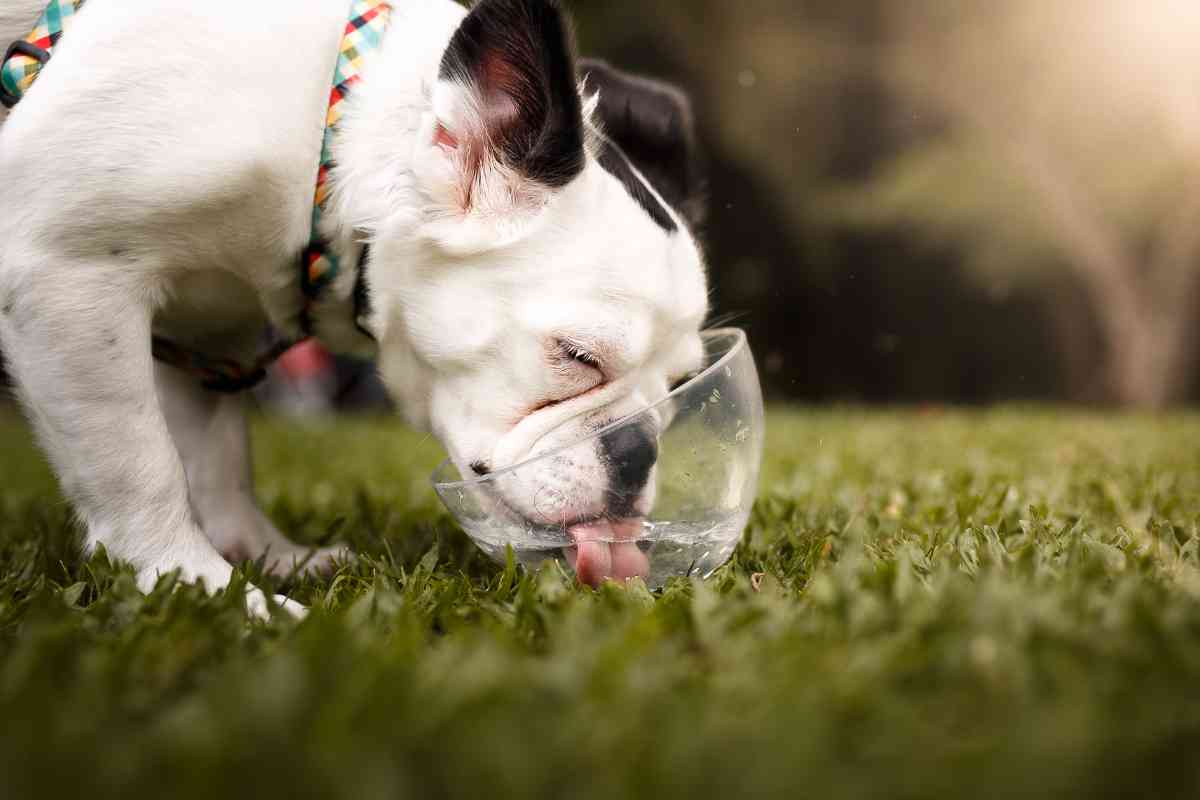
Recognizing Dehydration and Its Dangers
Dehydration in puppies can result from various factors, such as illness, heat exposure, or inadequate water intake. The symptoms of dehydration are serious and include lethargy, dry gums, and reduced skin elasticity.
A quick test for dehydration is to gently pinch the skin on the back of your puppy’s neck; if it doesn’t promptly return to its normal position, dehydration may be present. This condition, if not addressed immediately, can lead to severe complications.
Importance of Fresh and Clean Water
Constant access to clean water is a necessity for puppies. A dog’s water bowl should always be filled with fresh water and placed in a spot that’s easy to reach.
It’s important to change the water at least daily to maintain its cleanliness, which is essential in encouraging puppies to drink. In multi-pet households, having more than one water source can prevent competition and ensure all pets are well-hydrated.
The Role of Diet in Hydration
Water is the most critical factor in hydration, but diet also contributes significantly. Wet food, with its higher moisture content, is beneficial in increasing water consumption compared to dry kibble.
Adding palatable liquids like low-sodium chicken or bone broth can also encourage puppies to drink more. Always ensure that any additives are safe for puppies, avoiding harmful ingredients like onions or garlic.
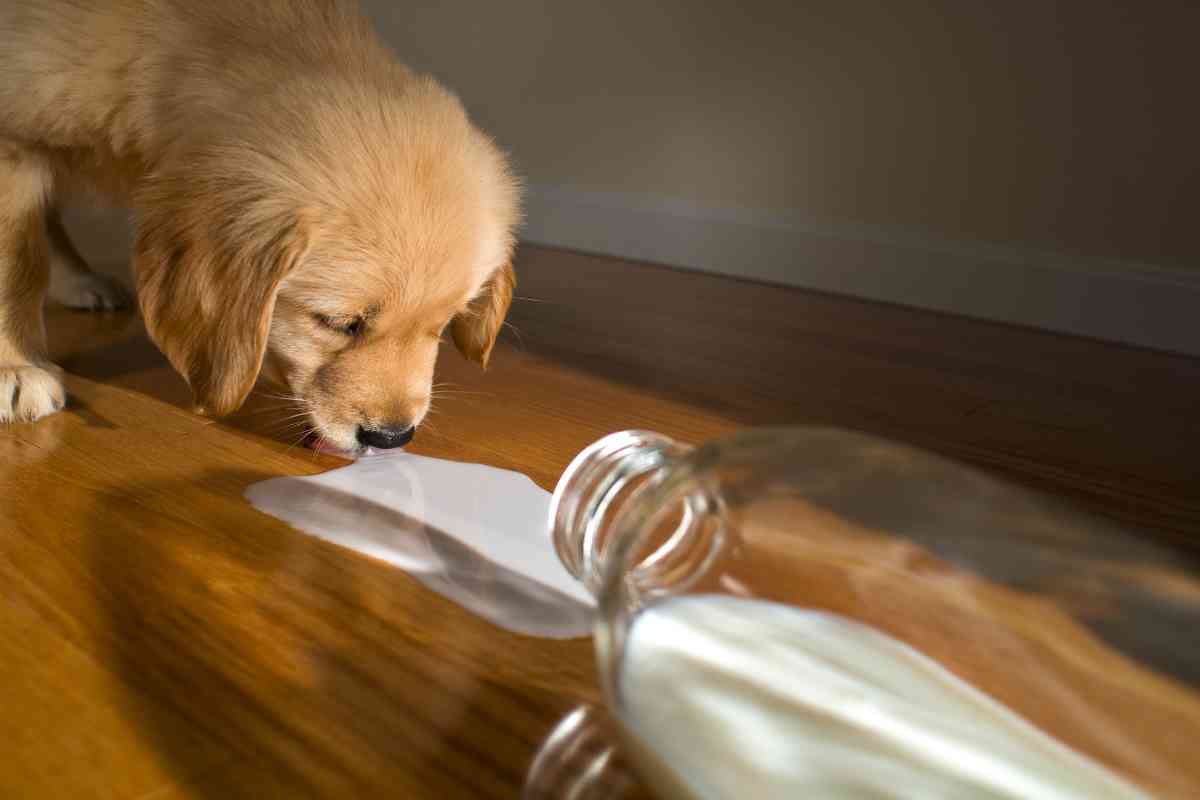
| Hydration Helpers | Description |
| Fresh Water | Essential for daily hydration; replace daily. |
| Wet Food | Increases water intake due to high moisture content. |
| Pedialyte | Veterinary-recommended supplement for hydration. |
| Chicken Broth | Flavorful addition to encourage drinking. |
Remember, while supplements like Pedialyte are helpful in treating dehydration, they should only be used under the guidance of a veterinarian. Keep your puppy’s water and food bowls clean and monitor their hydration status to keep your furry friend happy and healthy.
Conclusion
In conclusion, understanding the importance of proper hydration in puppies is key to ensuring their overall health and well-being. Regular monitoring of how much water your pup consumes, along with recognizing signs of dehydration like pale gums, sticky gums, or sunken eyes, is crucial.
Providing fresh, clean water in a dog’s water bowl and incorporating a balanced diet with high water content can significantly contribute to maintaining adequate hydration levels. Remember, a healthy hydration habit plays a significant role in preventing health issues and promoting a vibrant activity level in your puppy.
Frequently Asked Questions (FAQs)
How much water should my puppy drink daily?
The amount of water a puppy needs varies based on their size, activity level, and diet. Generally, puppies require about one ounce of water per pound of body weight each day. However, this can increase in hot weather or if they are particularly active.
Can certain health conditions affect my puppy’s water intake?
Yes, health conditions like diabetes, Cushing’s disease, and urinary or bladder infections can impact your puppy’s water intake. Excessive thirst or drinking habits can be signs of these conditions, so consult a veterinarian if you notice any unusual changes.
What are the signs of water intoxication in puppies?
Water intoxication, though rare, can occur and is serious. Symptoms include loss of coordination, excessive panting, vomiting, diarrhea, and dilated pupils. If you suspect water intoxication, seek veterinary care immediately.
How can I encourage my puppy to drink more water?
To promote better water intake, ensure fresh tap water or filtered water is always available. You can also enhance the taste of the water by adding flavors like bone broth or lactose-free milk. Remember to offer praise or a reward to reinforce good drinking habits.
What should I do if my puppy is not drinking enough water?
If your puppy’s appetite for water decreases, first check for any environmental factors that might be affecting them. If the issue persists, especially with symptoms like vomiting or changes in potty training patterns, consult your veterinarian for advice.
Is it safe to leave a water bottle for my puppy during bedtime?
It’s generally safe to leave a water bottle or a bowl of water accessible for your puppy at bedtime, especially if they’re prone to getting thirsty at night. Just ensure the setup is spill-proof to avoid any accidents.